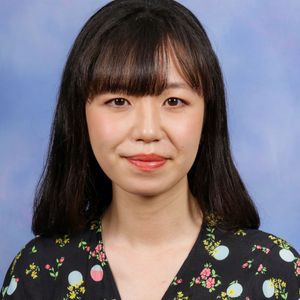
Languages and International Travel: Cultivating Profound Learning Outcomes
Arina Mizuno
Languages Leader at St Aloysius College
International travel and the study of languages have profound long-term learning outcomes that extend beyond the immediate experiences in the country and classroom.
Cognitive Flexibility
Learning new languages and navigating different cultural contexts challenge the brain to process and adapt to new information, improving skills such as problem-solving and adaptability. When students learn a new language, they engage in complex mental exercises that enhance memory and increase attention span (Huang et al., 2022). This is because the brain is constantly practicing switching between languages and learning vocabulary. Additionally, exposure to various cultures and languages through study tours and language study fosters creative thinking and innovation. When students immerse themselves in different cultural environments, they are presented with different perspectives and ways of understanding the world. This cultural exposure encourages them to think creatively and innovatively as they learn to appreciate and integrate diverse viewpoints (Kim and Runco, 2022).
Cross-cultural Understanding
Participating in international study tours offers students the opportunity to form global social connections. These connections such as those created from visiting partner schools, not only enrich students’ personal lives but can also cultivate lifelong friendships. Experiencing different cultures firsthand also fosters a deeper understanding of perspectives and values. It encourages students to reflect on their own assumptions, challenging their norms and promoting an appreciation for cultural diversity. By engaging with different cultural practices and viewpoints, students learn to have more meaningful and effective engagement with people from diverse backgrounds. They develop critical thinking skills and cultural competence, which are essential for thriving in a global society.
Global Mindset
International travel experiences broaden students’ worldview and fosters a global mindset. Immersion in various cultures and languages allows students to gain a deeper understanding and respect for different traditions and practices. For instance, as part of the international study tours, students participate in a cultural program organised by our partner schools. These programs provide valuable insight into school life and cultural practices, allowing students to engage directly with their international peers and experience everyday life in a different cultural setting. The skills acquired from international travel and language learning, such as adaptability and cross-cultural communication, are also particularly beneficial in work environments where effective interaction with people from different backgrounds is essential. These skills are essential in today’s globalised workforce, where the ability to collaborate and communicate effectively is increasingly important.
Personal Growth
The challenges of travel and language learning foster the development of essential life skills, such as communication, budgeting, and navigation. For those students who may be travelling abroad for the first time or without accompanying adults, study tours present unique opportunities for personal growth and independence. Facing and overcoming the obstacles associated with travelling and communicating in a foreign country develops students’ resilience and adaptability, equipping them with the tools they need to handle a variety of situations. These skills are all invaluable in both students’ personal and future professional contexts.
International travel and language study contribute to lifelong learning and personal development, equipping our students with the skills and perspectives needed to thrive in a globalised world.
Huang, T., Loerts, H., & Steinkrauss, R. (2022). The impact of second-and third-language learning on language aptitude and working memory. International Journal of Bilingual Education and Bilingualism, 25(2), 522-538.
Kim, D., & Runco, M. A. (2022). Role of cognitive flexibility in bilingualism and creativity. Journal of Creativity, 32(3), 100032. https://doi.org/10.1016/j.yjoc.2022.100032